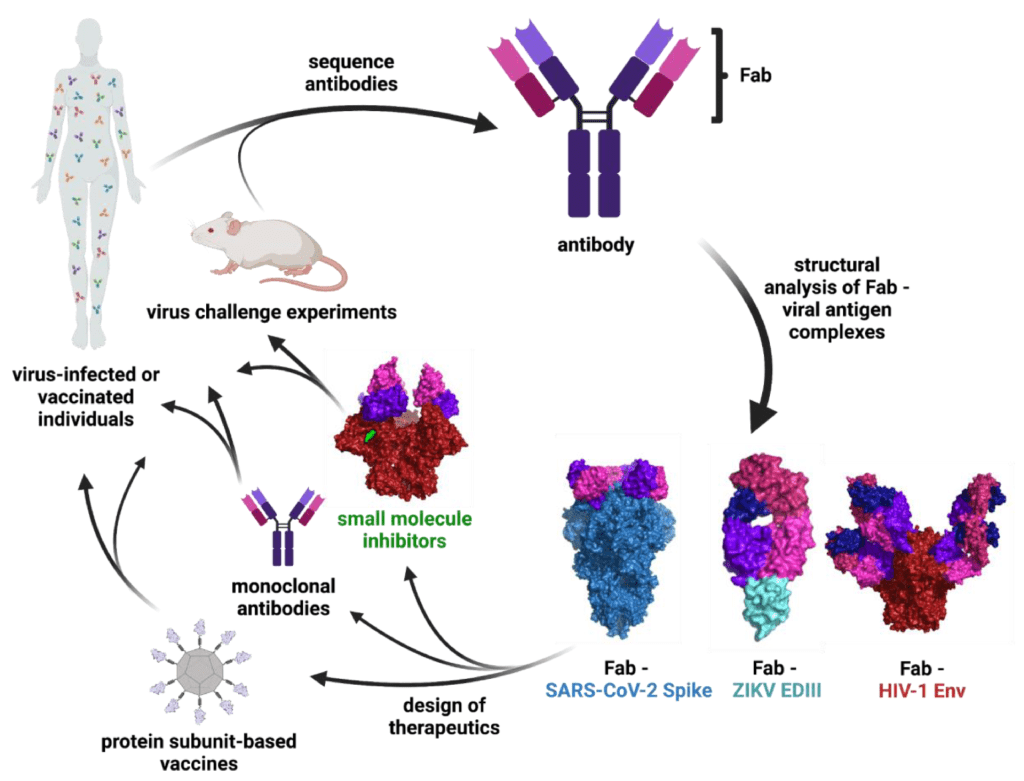Vaccination is one of the most effective tools in preventing infectious diseases. At its core, the success of a vaccine hinges on its ability to induce a robust and lasting antibody response against a specific pathogen. Antibodies are integral to the adaptive immune response, providing specificity and memory that are essential for long-term immunity. Vaccines work by mimicking a natural infection to stimulate this response, prompting the body to produce antibodies that can neutralize future exposures to the actual pathogen. Understanding how vaccines stimulate antibody production is crucial for both developing new vaccines and optimizing existing ones.
Mechanisms of Vaccine-Induced Antibody Generation
Vaccination stimulates the body’s immune system to produce antibodies in several stages:
- Antigen Presentation: Vaccine antigens are processed and presented by antigen-presenting cells (APCs), primarily dendritic cells, to T cells.
- B-Cell Activation and Differentiation: Helper T cells activate B cells that recognize the same antigen. Activated B cells proliferate and differentiate into plasma cells, which are antibody-producing cells.
- Memory B-Cell Formation: Some of the activated B cells become memory B cells, providing long-term immunity by responding more quickly and effectively upon re-exposure to the antigen.
Types of Vaccines and Their Impact on Antibody Production
Vaccines can be broadly classified into several types based on their composition and method of production. Live-attenuated vaccines contain weakened pathogens that can still replicate without causing illness and typically induce strong cellular and antibody responses. Inactivated vaccines consist of killed pathogens that cannot replicate. They often require adjuvants to enhance the immune response and multiple doses to achieve and maintain immunity.
Subunit, recombinant, polysaccharide, and conjugate vaccines include only specific pieces of the pathogen (like proteins or sugars), which are less likely to cause side effects and are used when live-attenuated or inactivated vaccines are not suitable. Meanwhile, mRNA and viral vector vaccines use pieces of genetic material to produce pathogen components in the body. These are among the newest types of vaccines and have shown high efficacy in inducing both antibody and cellular immune responses.
Factors Influencing Vaccine Efficacy
The effectiveness of a vaccine in inducing an adequate antibody response can be influenced by various factors:
- Antigen Design: The choice and design of antigens can determine how well the immune system recognizes the pathogen.
- Vaccine Formulation: Including adjuvants, stabilizers, and preservatives can affect the stability and immunogenicity of the vaccine.
- Route of Administration: Subcutaneous, intramuscular, and oral routes can affect the speed and quality of the immune response.
- Host Factors: Age, genetic background, nutritional status, and pre-existing immunity can significantly influence the immune response to a vaccine.
Challenges and Future Directions
Current challenges in vaccine development include designing vaccines that provide durable immunity against variable pathogens like influenza and HIV, improving vaccine access and acceptance, and quickly developing vaccines in response to emerging infectious diseases. Advances in genomic and proteomic technologies, as well as novel platforms like mRNA vaccines, are promising tools to meet these challenges.

